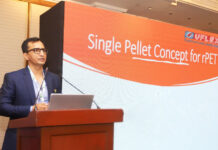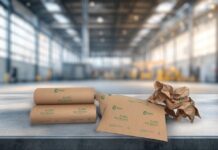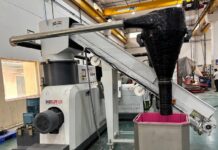
In the new year, the World Packaging Organisation has announced the winners of the WorldStar Awards 2022. Among the winners is a joint project between Austria’s school milk producers and three Upper Austrian companies (PET-MAN, Greiner Packaging, and Starlinger Viscotec), which involved producing sustainable cups from 100% r-PET to be filled with school milk for the state of Upper Austria.
Sustainability and a closed-loop for plastics are front and center as we move into the new year. Since last spring, used school milk cups made from PET have been collected separately so that they could be recycled in a dedicated closed loop. And shortly before Christmas, this loop was closed for the first time. Used school milk cups collected before the fall were shredded, washed, recycled, and new r-PET cups were made from the material. The first crates containing freshly recycled r-PET cups have already been delivered to the school milk producers.
Flagship project for a circular economy
The flagship project proves that a circular economy is possible in the plastics and packaging industries. And the solution has now received a WorldStar Award 2022 in light of this accomplishment. The awards have been running since 1970 and are highly coveted, with 440 submissions from 37 countries around the world vying for the World Packaging Organisation’s stamp of approval.

After picking up a Trigos and a Green Packaging Star Award in 2021, the project partners are proud to have their work recognized a third time with the WorldStar Award 2022. “It really is great to see our efforts receive this level of acknowledgment. For us, sustainability is not just a catchphrase – it is a duty we take very seriously. Thanks to the project, as well as doing our part to advance sustainability in general, children can be taught to treat nature responsibly from a young age,” says Manfred Stanek, CEO of Greiner Packaging. Johannes Strobl, who represents the Upper Austrian school milk producers, is also delighted, “The feedback I have received from the school milk producers is that the schools are excited about the project. They appreciate the fact that the used r-PET cups really are made into new cups.” Starlinger Viscotec is also convinced that r-PET is the ideal choice for food packaging: “Our vision is to have a process in place for collecting and recycling packaging made from white r-PET,” says Herbert Hofbauer. “After all, used cups are a valuable material.”
Making cups from cups
The concept behind the sustainable packaging sounds simple enough, yet it is a unique proposition. Austria’s school milk producers supply schools and kindergartens directly with dairy products in r-PET cups. The children consume the drinks during recess, then the used cups are gathered and returned for recycling to the school milk producers. Once collected, these cups are picked up from the farm, washed, and shredded. The resulting flakes are then cleaned and processed. As was the case for the first time before Christmas, the extruded plastic sheet is subsequently used at Greiner Packaging to thermoform new r-PET cups, which are then refilled by the farmers and delivered once again to schools and kindergartens. This closed loop releases over 30% less CO2 than reusable glass bottles, which are significantly heavier. Recycling the cups also requires less energy than processing reusable glassware, for instance, and produces less waste. The reason the cups can be recycled so easily is that they are unprinted and made from 100% monomaterial.
r-PET: material of the future
The recycling loop for r-PET makes it a material with a promising future. And as things stand, recycled PET is the only post-consumer secondary plastic approved for food applications in the EU. The white r-PET packaging can be reprocessed into food packaging, making it the ideal recyclable packaging solution for dairy products. Technology – thermoforming; decoration – non; and, material – r-PET. For further information about the r-PET school milk cup, please visit www.rPET-cup.com.










